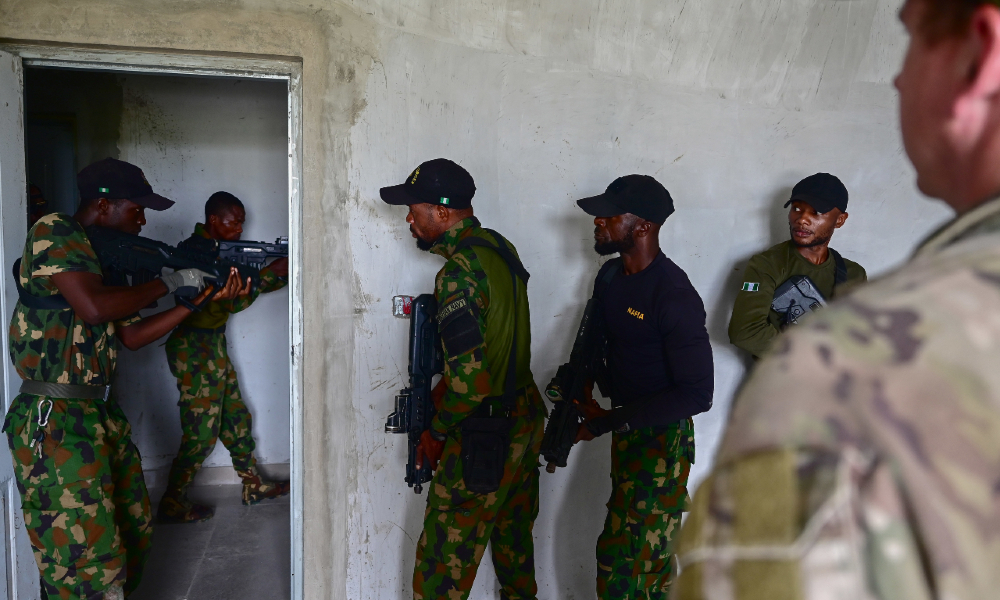The Government's Bahlul En Banc Brief
Get it here. My personal prediction: The only chance the government has of prevailing before the court is if the judges conclude that Ali Hamza Al Bahlul has not willingly filed an appeal. The government's merits arguments are going nowhere. Here's the government's summary of its argument:
Published by The Lawfare Institute
in Cooperation With

Get it here. My personal prediction: The only chance the government has of prevailing before the court is if the judges conclude that Ali Hamza Al Bahlul has not willingly filed an appeal. The government's merits arguments are going nowhere. Here's the government's summary of its argument:
1. In the Military Commissions Act of 2006, Congress created a comprehensive military commission system to try alien unprivileged enemy belligerents for offenses that, as Congress found, were traditionally recognized under U.S. law and practice as offenses subject to trial by military commission. In the 2006 MCA, Congress expressly permitted trial by military commission for any of the codified offenses for conduct committed prior to the 2006 MCA’s enactment. And in a separate provision, Congress provided that military commissions under the 2006 MCA have jurisdiction over all of the offenses for conduct committed before, on, or after September 11, 2001. Those provisions demonstrate that Congress provided for military commission jurisdiction over all of the codified offenses---including the conspiracy, solicitation, and material support for terrorism offenses committed by Bahlul---for conduct committed prior to its enactment.That construction is confirmed by the statute’s background, purpose, and legislative history. Congress enacted the 2006 MCA in direct response to the Supreme Court’s decision in Hamdan I, in which several concurring opinions invited Congress to clarify the scope of military commission jurisdiction and the validity of conspiracy charges. Congress responded by finding that the codified offenses, including conspiracy, were traditionally triable by military commission and therefore applicable to pre-enactment conduct. The statute’s context and legislative history also establish that Congress intended the military commission system to exercise jurisdiction over conduct related to the September 11 attacks. The 2006 MCA’s jurisdiction over Bahlul’s conduct does not implicate ex post facto principles, because the conspiracy, solicitation, and material support for terrorism offenses for which he was convicted were traditionally triable by military commission. The offense of conspiracy, in particular, has traditionally and lawfully been tried by U.S. military commissions since the Civil War and through World War II. Indeed, several of the most prominent examples of military commission prosecutions in American history involved conspiracy charges, including conspiracy charges against the conspirators involved in the assassination of President Lincoln and conspiracy charges against Nazi saboteurs who infiltrated the United States during World War II. There has never been a requirement that the government prove the completion of the object crime. Even if there were such a requirement, it was satisfied in this case by the military commission’s finding that Bahlul’s co-conspirators completed the September 11 attacks.U.S. military commissions have also long punished unprivileged belligerents who unlawfully solicit or induce others to commit offenses triable by military commission. And while the “material support” label is a contemporary usage, the act of aiding, assisting, or joining with those engaged in unlawful acts of belligerency has been treated as an offense by the United States and tried by military commissions since the Civil War. Article 21 of the UCMJ, 10 U.S.C. § 821, does not limit the jurisdiction of military commissions convened under the 2006 MCA for prosecution of pre- enactment conduct to offenses that are prohibited by international law. First, Congress specifically amended Article 21 to provide that it does not apply to a military commission established under the 2006 MCA. Second, Article 21 does not by its terms restrict the jurisdiction of military commissions, but rather functions as a savings statute to ensure that Congress’s extension of court-martial jurisdiction in the UCMJ did not deprive military commissions of jurisdiction that they had traditionally exercised. In addition, the jurisdiction recognized in Article 21 is not restricted to offenses within Congress’s power under the Define and Punish Clause. Congress’s constitutional authority to codify military commission offenses resides both in the Define and Punish Clause and in its war-making powers, and, accordingly, both Congress and the President have authorized trial by military commission of offenses, such as spying and sabotage, that international law permits the United States to punish, but which are not prohibited by international law.2. Although the Ex Post Facto Clause applies to military commission trials of detainees held at Guantanamo, Bahlul’s convictions do not violate that Clause because the 2006 MCA did not create new offenses but merely codified well-established offenses that have long been tried by U.S. military commissions. The purposes of the Ex Post Facto Clause---providing fair notice and preventing arbitrary and potentially vindictive legislation---are not implicated by Bahlul’s prosecution, because his conduct was self-evidently criminal and subject to prosecution under existing criminal statutes, such as 18 U.S.C. § 2332(b) (1998). In addition, Bahlul cannot establish that his forfeited claim of an ex post facto violation affected his substantial rights or seriously affected the fairness, integrity, or public reputation of judicial proceedings.3. Bahlul’s remaining arguments lack merit. The 2006 MCA’s codification of offenses triable by military commission does not impermissibly encroach on the judicial power of Article III courts. Moreover, the jury trial guarantees and other procedural safeguards of the Fifth and Sixth Amendments do not apply to offenses traditionally triable by military commission committed by unprivileged enemy belligerents in the context of hostilities against the United States. Nor did the 2006 MCA impermissibly create federal common law crimes. Nothing in the Supreme Court’s cases prevents Congress from codifying, and applying to pre-enactment conduct, offenses that were recognized under the common law traditionally applied in military commissions.





